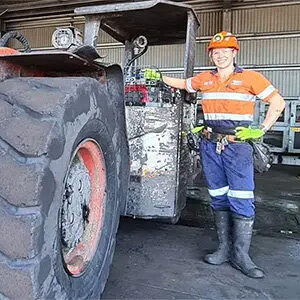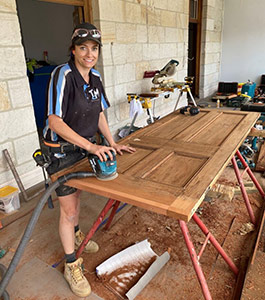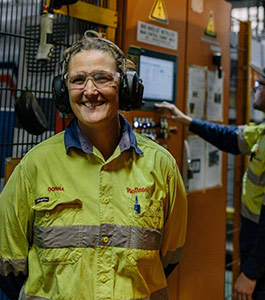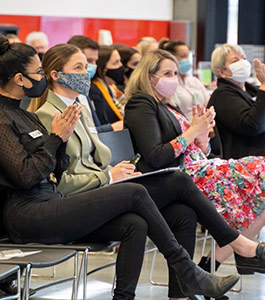….. Women apprentices/trainees in the core trades of carpentry, automotive and electrical has remained less than 2% for over twenty-five years.
National Online Summit
Tuesday 12 May 2020 5.30pm-6.30pm
Managing Director of Tradeswomen Australia, Fiona McDonald today called for an end to the discrimination against women in the trades area, saying it was a major threat to the economy.
Ms Mac Donald said,” the issue which has flown under the national employment agenda should be given more consideration as part of Australia’s recovery strategy and current gender equality legislation.
The National Skills Needs List (2019) lists 65 trades that are experiencing national skills shortages , sixty two can be classed as male-dominated trades; only 3 could be classed as female-dominated.
Tradeswomen Australia today will hold an online national summit on how to lead a team through crisis, and leadership for gender equality with two of Australia’s most experienced commentators on these issues.
Suzi Finkelstein CEO of Women & Leadership Australia and Terrance Fitzsimmons Snr. Lecturer in Leadership Theory for The University of Queensland Australia and Managing Director of Australian Gender Equality Council.
Ms Mac Donald said having women shut out of these trades areas for a quarter of a century when 50% of Australian population is represented by women is a major employment and gender discrimination issue Government at all levels needs to consider with the assistance of the industry bodies involved.
“Some progressive companies and training organisations are starting to lead the way along with industry bodies” Ms Macdonald said.
Barriers to increasing the number of women employed in the trades have been identified as:
a) Lack of information and engagement about trade with career advisors and secondary school girls
b) Poor workplace culture and social misconception make trades unattractive as a career path
c) No structured support systems for women working in male-dominated trade industries.
Ms McDonald said in 2012, the Grattan Institute found that if there was an extra 6% of women in the workforce, we could add up to $25 billion, or approximately 1%, to Australia’s Gross Domestic Product. * ²
Media Enquiries:
Ron Smith, Media Communications – Mobile: 0417 329 201
Fiona Mac Donald CEO TWA available for comment
Suzi Finkelstein CEO of Women & Leadership Australia
Suzi shares her story and talks about Gender equality
Snr. Lecturer in Leadership Theory for The University of Queensland Australia and Managing Director of Australian Gender Equality Council
Terry speaks on Gender Equality in Australia
*¹ Women bring a positive impact to the trade workforce creating a culture and behavioural change, FACS NSW Occasional Paper ‘Women in Trades – the Missing 48%’ March 2013. * ² Towards 2025 An Australian Government Strategy to Boost Women’s Workforce Participation
ABOUT THE ORGANISATIONS
Tradeswomen Australia is a not for profit organisation dedicated to gender equality and empowerment for all girls and women to access, participate and succeed in trades.
Women and Leadership Australia Based on a simple truth, that women still represent an enormously under-utilised national resource, Women & Leadership Australia (WLA) is dedicated to developing female leaders and supporting the increased presence of women in business and community leadership roles. We believe that supporting a greater percentage of women to step up into leadership across all vocations and industries will have tremendous cultural and economic benefits
The University of Queensland Australia is independently ranked as one of the top business schools in Australia and among the leading institutions worldwide. Based at the UQ St Lucia campus as part of the Faculty of Business, Economics and Law, it brings together over 200 subject experts with over 12,000 students and offers a wide range of degree programs and Executive Education. Australian Gender Equality Council Responding to the unacceptably slow pace of change towards gender equality in Australia, leading organizations, which represent over 500,000 women in the workplace, have come together to form the Australian Gender Equality Council (AGEC), a national not-for-profit organization.





